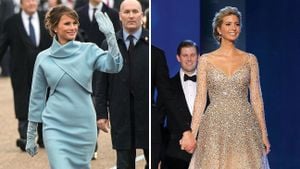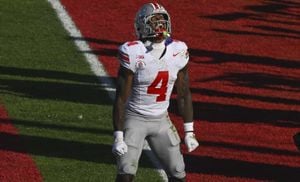Elon Musk’s appearance at the inauguration of Donald Trump on January 20, 2025, has sparked controversy due to what many observers have interpreted as a Nazi salute. Musk, who arrived at Washington D.C.'s Capital One Arena to the electrifying strains of ACDC's "Thunderstruck," expressed his enthusiasm openly for Trump's presidency, declaring, "That's what victory looks like!" to the crowd of supporters gathered inside.
Following his speech, which lasted over three minutes, and thanked the Trump supporters, Musk performed the gesture, placing one hand over his heart and extending his arm outward. This moment was captured on various social media platforms, where it quickly ignited debate about its meaning.
While some observers immediately labeled the gesture as reminiscent of gestures used by Nazi supporters, others pointed out the possibility of it being interpreted as a ‘Roman salute’. Online commentary ranged from shock to speculation, with one user posting, "Wait, did Musk just give a Nazi salute?" It’s clear the episode resonates powerfully alongside Musk's high-profile connections to controversial political circles.
Tristan Mendès-France, who specializes in extremism and conspiracy theories, urged caution against jumping to conclusions. He tweeted, "Attention to the supposed fascist salute of Musk. The entire sequence seems to show him sending hearts, which he states right after. Let’s avoid giving disinformers the chance to correct us.” Nevertheless, the imagery of the gesture did not escape scrutiny, especially coming from such a prominent figure within the Trump administration.
Musk had previously indicated support for Trump's administration, aligning with policies geared toward reducing governmental inefficiencies, which may have prompted his recent ascent as the proposed minister of "government efficiency". This positioning ensures he will have significant influence over future administration policies.
The controversy surrounding Musk's gesture also draws attention to larger societal issues under the Trump presidency, particularly concerning rights for marginalized communities. Speculation arose concerning how Musk's public endorsements of far-right parties, such as Germany's Alternative für Deutschland (AfD) known for their anti-LGBT rhetoric, might inform his approach to governance.
Under Trump’s past leadership, policies have frequently provoked concern among the LGBT community, accentuating fears over potential rescindment of hard-won rights. This has led activists to approach Musk’s increasing influence with trepidation, fearing it may embolden anti-LGBT policies.
The capacity of figures like Musk to sway public opinion and policy decisions underlines existing fractures within American political discourse. The episode exemplifies the volatility of aligning oneself visibly with controversial figures and ideologies.
Despite the backlash and speculation, Musk has remained silent on the criticism of his gesture during the inauguration, as has Trump. The lack of commentary invites speculation about how such gestures are interpreted and what they could predict for future political dynamics.
Within the broader scope of American politics, the ascendance of Musk to such significant roles coupled with the controversies surrounding his actions raises questions about the moral direction of the government. The gesture, seemingly innocuous for some, has been galvanized by historical associations and the current socio-political climate, creating ripples of concern over what it foreshadows for the nation.
The incidents at the inauguration serve as both a reflection of existing tensions and as potential harbingers for the direction this administration could take moving forward. Activists continue to watch closely, overwhelmed by the visibility of such figures influencing the frameworks of rights and freedoms under threat. Activism will undoubtedly continue, championing the protection and advancement of minority rights, particularly as they navigate the choppy waters of contemporary governance.



